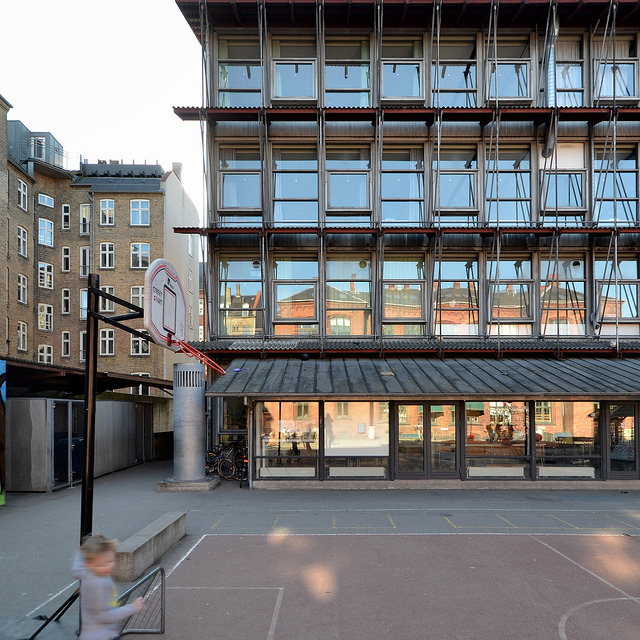
This post is an excerpt from my remarks at a recent preschool speaking event. One of the first –and most important–things to do is figure out the type of school that’s right for your child. Sometimes a school is a mix of several philosophies (you’ll see a few schools listed in several categories below) or it’s not clear to you what type of school it is from a website or a tour. Most L.A. private elementary schools are a hybrid/mix of educational philosophies. This is not an exact science, but more about the way each school adheres to a particular philosophy or combines several philosophies. For example, you might see a progressive school with a developmental approach to teaching. Or, you may see a traditional school that incorporates a developmental approach in the classroom. But, if a school doesn’t seem to have a clear philosophy that can be understood and explained, ask questions! And, there are clues you can look for to help figure out what kind of school it is. Your goal should be for your child to attend a school that offers a learning environment where he/she can thrive and one that you truly believe in. — Christina
While every school is different, here are some of the characteristics that can help you identify the type of school:
Traditional: ( Examples: John Thomas Dye, Viewpoint, Carltorp, Brentwood, Pilgrim, St. James, St. Brendan, Curtis, Steven S. Wise, Campbell Hall, Village, Mirman, Chandler (Pasadena), St. Matthews), Catholic Schools tend to be traditional
- Similar to the public schools many of us attended as kids
- Academic achievement is the core philosophy
- Structured schedule
- Teacher centered-not kid centered
- Kids expected to meet academic milestones by certain time (reading by mid-year kindergarten)
- More homework, more multiple choice tests, quizzes
- Fewer group projects
- Teacher directed work, not kid directed
- Classroom setup usually has teacher at front, desks facing front of room
- Grades start early
- Lots of memorization
- Competitive sports teams
- A focus on good character and values
- Uniforms
Developmental: (Brentwood, Turning Point, Echo Horizon, Oakwood, Lawrence, Campbell Hall, Temple Israel, St. Mark’s (Altadena), Willows, Center For Early Education, Westside Neighborhood School)
- Kids develop and learn at their own pace, eventually all arriving at the same academic milestones (reading for example). That is celebrated, not discouraged.
- Kids are not competing with each other to see who can read first or memorize multiplication tables first.
- Kids can help each other learn, not just teacher directed learning
- Big concepts and ideas are taught, not a ton of detail/memorization
- Integrated curriculum…what’s happening in science relates to language arts, etc.
- May or may not have uniforms
Progressive: (PS#1, Wildwood, Pasadena Waldorf, Westland, Children’s Community School, Oakwood Elementary, Seven Arrows, Willows, Sequoyah (Pasadena), Waverly (Pasadena), Center For Early Education, Lycée International de Los Angeles, Walden, Pasadena)
- Child-centered learning, kid-initiated projects
- Concepts like sharing, creating, caring
- Engaging kids with the world around them
- Rejection of memorizing big amounts of information
- A whole child approach-social, emotional and academic have equal importance
- Lots of group projects, discussion and debate
- Kids work at tables grouped for 4 or 6 kids
- Very little homework, few worksheets (if any)
- No grades until MS or even HS (or not)
- Lots of expository writing
- Play-based in preschool and kindergarten
- An emphasis on field trips for real-world learning
- A focus on the arts
- A de-emphasis on standardized testing
- Kids working on creative projects with their hands using wood, paper, found objects
- If there are uniforms, they might be a t-shirt
Let’s be social! Like Beyond The Brochure on Facebook. We post a lot of stuff on Facebook that’s not on the blog! Are you more the email type? Get our posts in your in box by subscribing (enter your email in the “subscribe” box on the right sidebar of the blog. Or, buy the Second Edition of our book at Amazon.com or your local bookstores!

Why didn’t you list WNS as a developmental school? It was not on the list at all. Just asking.
Thanks!
Camille
Hi Camille, thanks for the reminder. I added it! Christina
Where does Crossroads appear on your spectrum? I found very little information about that school on your website …?
Thank you!
Hi Alexandra, I’ve toured Crossroads for kindergarten and middle school. I’d put it in the progressive category for sure. The secondary school is rigorous, but with a progressive approach. Christina
What are your thoughts on Los Encinos?
Hi Calla, my first introduction to Los Encinos was last year when I met a few of my daughter’s classmates at Viewpoint who graduated from Los Encinos. I also met a mom I really like who used to teach there. So, my impression is good, but I haven’t seen the school. –Christina
Do Developmental Schools accept children with special needs?
Hi Rhea,
Yes, developmental schools do accept kids with special needs. In my experience, many L.A. private/independent schools have kids with special needs. Then there are also schools like Park Century, Bridges or Westmark that specialize in educating kids with various kinds of learning issues i.e. dyslexia, autism, seizure disorders, etc. I hope that helps. Christina
Is there a progressive private school that is not religious based?
Hi Patrice,
The vast majority of progressive private schools in L.A. are non-religious. Examples include Wildwood, Westland, PS#1, Oakwood, etc.
Best,
Christina
Any recommendation for progressive schools in Orange County?
Hi Emily,
We don’t cover Orange County so I’m not familiar with those schools. –Christina